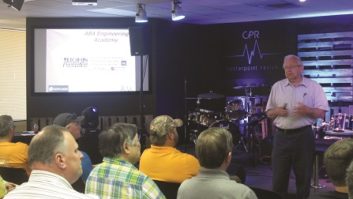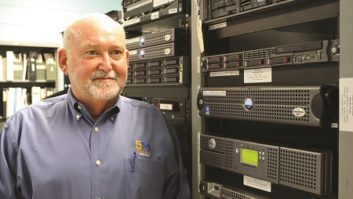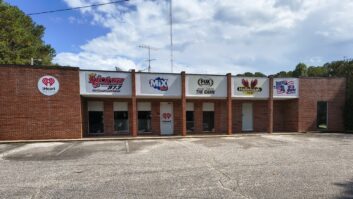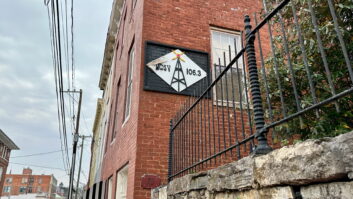Next week, the National Federation of Community Broadcasters heads to Charlottesville, Va., to discuss community media’s biggest needs in 2018 in an NFCB Regional Summit, July 19–21. With conversations about equity and content with Juleyka Lantigua-Williams, small-team digital efforts for radio with Samantha Ragland and more, it is one of the rare opportunities for community broadcasters to get these kinds of insights. However, a regional summit is not the only place to learn and grow.
NFCB’s event is concurrent with the time that many organizations are gathering and talking about the important issues of the moment for stations. In Chicago this week, Greater Public convened its annual Public Media Development and Marketing Conference, the country’s largest gathering of public radio and television. During this same week, the Alliance for Community Media hosted its annual meeting in Baltimore.
At both the Greater Public and ACM events, there has been a sharp focus on diversity and inclusion. The most noteworthy news was the Corporation for Public Broadcasting unveiling nearly $2 million in grants for podcasting diversity efforts. Yet all of these events offer smart perspectives on many other trends as well as fundamentals important to all stations.
[Read: Community Broadcaster: Coast to Coast]
The astute Ken Mills points out the cost of attending conferences can be prohibitive for community radio stations. However, I would suggest, there are benefits to these sorts of educational opportunities that make the investment worth it.
As a former program director and news director, I can sympathize with the reasons a station might pass on attending a conference, a summit or other community media gathering. The day-to-day issues that come up when running a community radio station are, at moments, overwhelming. There are equipment problems that need to be attended to on a regular basis. There are volunteers who need training and supervision. Oh, and then there’s the programming that has a 24-hours-a-day, seven days a week churn that just does not stop. With all the tasks facing a station with small-to-no staff and plenty of demands, it can hard just to look beyond the weekly to-do list.
Then there’s the pesky matter of money. Seldom does a grantmaking organization provide funding for building capacity. Where will you find the funds you need to get to a conference or summit? If the many nagging needs of your station don’t thwart you from even considering such events, funding surely can.
For some, attending this stuff feels like a waste of time and energy. Here’s why that thinking is faulty, and stations are missing out.
Community media attracts a particular kind of person who is driven by the medium and the mission. These individuals can, and often do, make sacrifices in pay, hours and a host of other areas because they believe so passionately about community radio. Community media stalwarts are also naturally curious. When you have such energized and committed people, it makes the most sense to help them to do the best work they can for the station. Supporting training and education, such as in extra schooling or conferences, is one way to help them help your station.
Spending more money on community radio people swims against common thinking in the space. But what if our thinking is wrong? While it is certainly an honor and a privilege to be involved in community radio, is it not better to attract and retain the best people we can? And shouldn’t we help them work more effectively with more training? Ultimately, more aware volunteers, board members and staff make the station and its culture even more welcoming, innovative and stronger.
The best part of all is that sending community radio volunteers, board members and staff to events is low risk and high reward. They come back happy, excited and with lots to share. And the station gets back lots of tools, contacts and lessons to apply to its daily efforts.
Again, as someone who has been there, I know a conference can take time and money from other station priorities. Yet the difficulty with this kind of thinking can be that stations then just learn as they go. They can make the same mistakes as their predecessors. Finding out the trends, policies and best practices becomes an exercise in scouring YouTube and Facebook or, even worse, never finding out at all because you just don’t know where to look. Community media, in turn, suffers and it ends up costing more — in time spent figuring out things, lost productivity and opportunity — in the end.
Those general observations about community media volunteers, board members and staff? One other one that bears out is that many of these individuals enjoy being the lifelong learners in their communities. It is a win-win for stations to fuel that spirit as much as possible.







